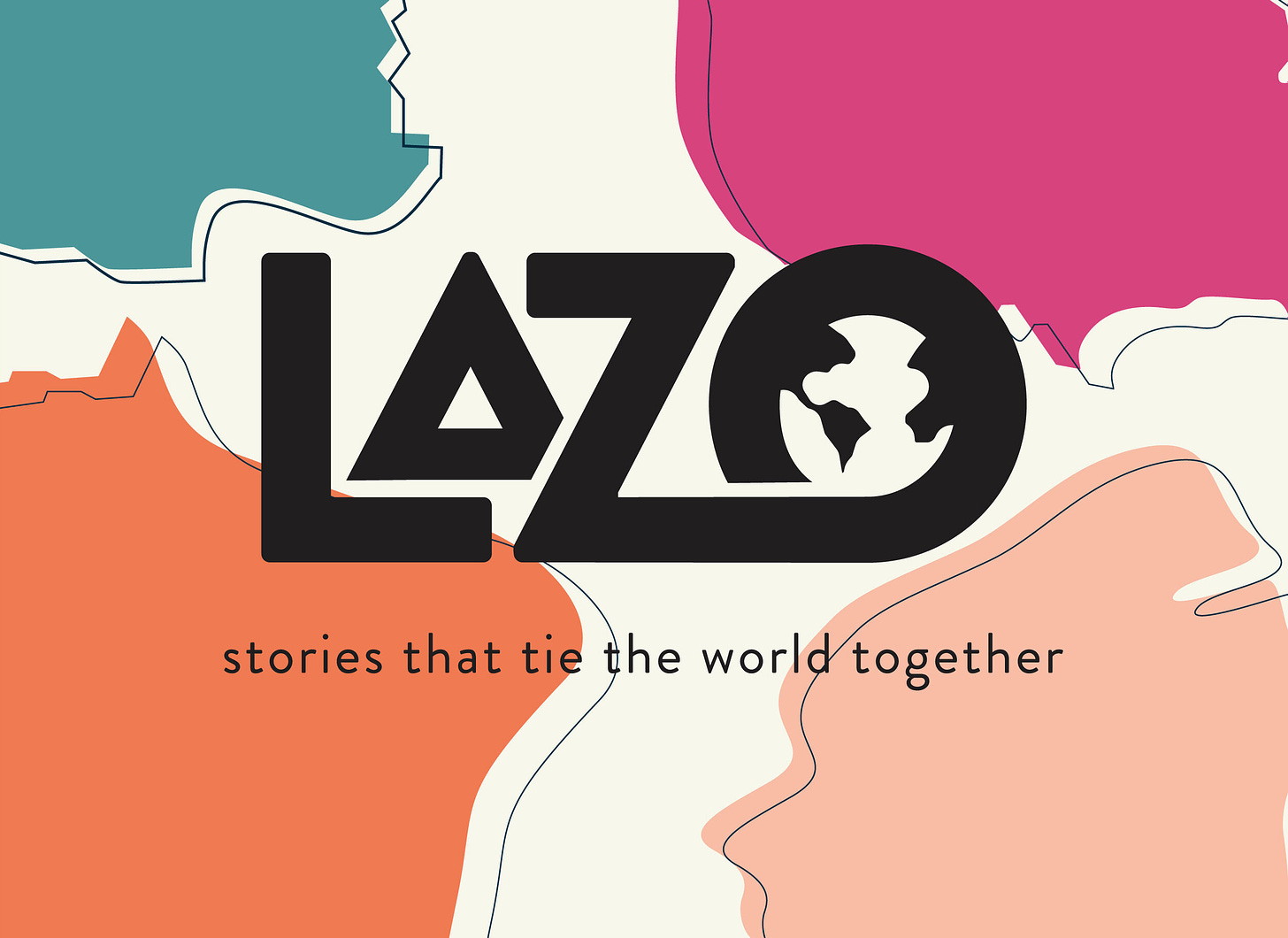Greetings, all! When you get this, I’ll be dancing at my little cousin’s wedding in Maine.
But Lazo Magazine still has something for you to read this week. It’s a mini-profile of a new Indigenous land rights organization that popped up after its founder, Nana Kwesi Osei Bonsu, was forced to flee Ghana. Bonsu eventually resettled in Ohio, where he started a new movement to defend Indigenous property rights. He spoke to journalist Kristi Eaton about his experiences moving across borders and what motivated him to launch his organization.
You can read the article by clicking this link.
Lazo Magazine is now on social media. You can follow along on Facebook, Twitter, LinkedIn, and Instagram. And if you can donate to Lazo Magazine or become a paid subscriber to this newsletter, that’s always appreciated.
What I’m writing:
• I wrote about how the world is preparing for a potential Iranian strike on Israel and the growing sense of frustration across the Middle East as political leaders drag people closer to a full-scale regional war that wouldn't benefit anyone. This story is unlocked and free to read.
What I’m reading:
• Ukraine launched a cross-border attack into Russia’s Kursk region, the Guardian reports. Although Russia claimed it repelled the incursion, reports from Russian military bloggers indicate the attack was substantial.
• Mali said it cut diplomatic relations with Ukraine after a Ukrainian military official, Andriy Yusov, suggested Kyiv was involved in deadly fighting near the Algerian border that killed dozens of Malian soldiers and mercenaries from Russia’s Wagner group, the BBC reports.
• Niger’s junta cut diplomatic ties with Ukraine over comments it said showed Ukraine’s support for groups involved in the Mali-Wagner attack that killed dozens in July, Reuters reports.
• Bulgarians will be asked to choose a new government for the seventh time in three years, Politico Europe reports. The last attempt in June failed to produce a winner.
• Catalan independence leader Carles Puigdemont, who has been in self-imposed exile in Belgium since 2017, planned to sneak back into Spain — and into the Catalan parliament — even though he risks almost certain arrest, Politico Europe reports.
• Defying a Spanish arrest warrant, Catalonia’s separatist leader returned to Barcelona after seven years, the New York Times reports. Large crowds greeted Carles Puigdemont. It is unclear if or how the amnesty law Spain passed this year for alleged crimes linked to the failed independence bid would apply to him.
• Violent anti-immigrant riots broke out in dozens of cities across the United Kingdom, set off by a far-right disinformation campaign following a deadly stabbing that killed three children at a dance class, the New York Times reports. Video footage shows demonstrators smashing windows, hurling missiles, and igniting a hotel that housed asylum seekers.
• After a week of anti-immigration riots in Britain, thousands took to the streets to decry racism and protect refugee centers, the Washington Post reports. The counter-demonstrators appeared to outnumber the agitators and, for at least one night, helped stop the violence.
• Venezuela’s opposition candidate likely received more than twice as many votes as President Nicolás Maduro in the country’s election last week, according to a Washington Post review of “more than 23,000 precinct-level tally sheets collected by the opposition, a sample that represents nearly 80 percent of voting machines nationwide.”
• Venezuela’s top prosecutor announced a criminal investigation against the opposition’s presidential candidate Edmundo González and its leader, Maria Corina Machado, over their “call on the armed forces to abandon their support for President Nicolás Maduro and to stop repressing demonstrators,” the Associated Press reports.
• Hamas named Yahya Sinwar as the new head of its political office, replacing Ismail Haniyeh, who was assassinated in Tehran last week, the BBC reports.
• A rebel army in Myanmar announced that it claimed a regional military base, giving the resistance control of a city and airport on a crucial trade corridor to China, the New York Times reports.
• Bangladesh’s Prime Minister Sheikh Hasina resigned and fled the country after thousands of protestors stormed her palace, ending her 15-year rule, NBC News reports.
• Nobel laureate Muhammad Yunus declared there is “a lot of work to be done” in Bangladesh as he arrived in the country to take over as interim leader, the BBC reports.
• Thailand’s constitutional court disbanded Move Forward, the country’s most popular party, which won last year’s election but was blocked by the country’s conservative establishment over its call to reform a strict royal defamation law, the New York Times reports.
• Australia raised its nationwide terror alert level to probable, citing extremism among young people who are “turning to racially or religiously inspired violence with little or no warning,” the Wall Street Journal reports.
• About 40 people were arrested in northern Nigeria for waving Russia’s national flag at protests against the high cost of living and what they view as “bad governance,” the BBC reports.
You can write to me for any reason: c.maza@protonmail.com






